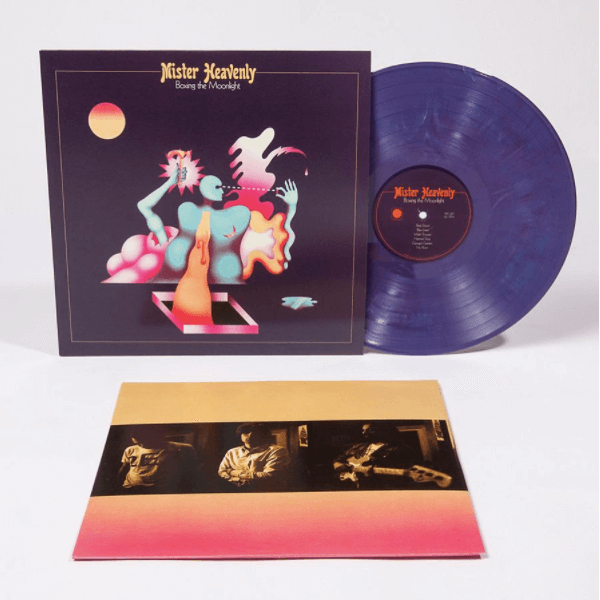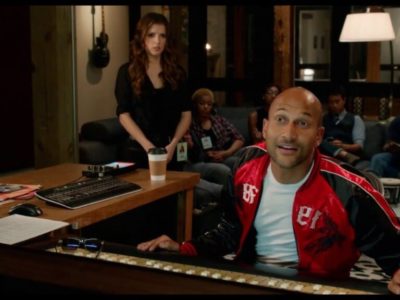This post is sponsored by The NAMM Foundation.
Also written by Valerie Siu and Celina Pelaez.
Get ready to be at the forefront of music innovation. As a music business major, you’re on the path to work with creative companies that push the boundaries of music. These companies launch aspiring artists into household names. They transform run-of-the mill instruments to the coolest new digital equipment. They turn music information into data that predicts your song preferences. Start your music business career right when you step out of college at some of the most innovative companies.
Pro tip: Network with music business employers at The 2018 NAMM Show. College music students who register for GenNext by January 10 can get badges for just $25. Pretty sweet deal!
Check out 21 innovative companies that want to hire YOU and your music business degree.
1. Spotify
Whoever said that math and music don’t click needs a reality check. Spotify uses data to connect you to your new favorite song—without even asking you a single question. When you listen to your favorite John Mayer song, like “Who Says,” on repeat, Spotify starts to create your “taste profile.” The algorithm finds users with similar taste profiles and adds songs you’ve never played, like Jack Johnson’s “Bubble Toes,” to your Discover Weekly. This “collaborative filtering” approach lets individual taste and community combine to make you a playlist of songs that sound similar to what you listen to now or something entirely different that you’ll likely love. You can join Spotify’s team aka their “band” by working in anything from business development to content creation. You can even apply for jobs specifically tailored to your music business major, like Licensing Manager Publishing, the person who tackles music copyright law on the daily.
2. Atlantic Records
Atlantic Records is always two steps ahead of its competitors in the music biz. This label was one of the first to ditch their sole focus on CDs and cassette tapes back in 2008 for the MP3 digital world. Employees at every level think about how to get their client more music audience impressions through marketing, content creation and more. Now most of their success comes from digital revenue. This tech revolution helps them focus on what matters—the artists. And it pays off, considering they earned 18 Grammy nominations in 2016. Brushes off shoulder. Flex your Internet marketing skillz at this innovative music company.
3. Innovative Percussion
A good drummer keeps the beat. A great drummer experiments with different textures and sounds to get the audience engaged beyond the light head bob. Those different sounds don’t all come from regular drumsticks—they also come from brushes, mallets and beaters. Innovative Percussion manufactures the implements every drummer needs to create melodic innovation. A standard salesperson can talk numbers. But as a music business grad, you’ll help your drummer customer hear how the Fanned Bundle Stick’s dark, blended timbre fits the broody tone of his band’s latest album.
4. Yamaha
You learned to play “Chopsticks” on the Yamaha piano in your living room. And then your piano played it right back to you. Aside from standard brass, woodwinds, guitars, pianos and marching instruments, Yamaha engineers build musical innovation beyond your childhood dreams. The Yamaha Disklavier piano records every brushstroke and pedal movement to recreate your best performance of Beethoven’s “Moonlight Sonata.” Beyond instruments, Yamaha also develops music technology like Vocaloid, software that lets you put input the lyrics and melody into the computer to create a song, no vocalist required. As a music business major, you’ll experience technologies that make the business of music more efficient than ever before.
5. Buffet Crampon Group
This wind instrument manufacturer made music innovation back in the 1800s. And it won them multiple awards at the 1889 Universal Exposition in Paris. Fast-forward to the 1990s, Buffet Crampon designed the Green LinE brand of woodwind instruments that uses reconstituted ebony for longer-lasting reliable instruments that keep their acoustic integrity. The best part? They love hiring music majors. Pacific-North Division Manager at Buffet Crampon Jordan Olinsky said, “Music Business majors, for the most part, are musicians ourselves. It is no secret that musicians prefer to speak with other musicians, and a MB major provides that.” Two music business major alumni from SUNY Potsdam’s Crane School of Music were hired as Division Managers in the last six months. “Musicians don’t always want to hear the specs, they want to know how the specs make it sound better,” said Olinsky. In other words: Your skills are in mad demand at Buffet Crampon.
6. Zoom North America
Remember when only acoustic guitars dominated the sound waves? Probably not, because companies like Zoom North America developed pedals that give guitar strings the edge they need to make music more expressive. Zoom’s products, like the G3n, let guitarists delay and distort their music to push the boundaries of rhythm like Santana and create wah-wah effects like Jimi Hendrix. Or you can ditch the band altogether and opt for a completely digital instrument, the ZOOM ARQ AR-96. The wireless Bluetooth Ring Controller feature lets musicians move to the beat with the crowd and control sequences with the touch of a button. And number-crunching accountants didn’t come up with that in the boardroom—music business experts did.
7. Carlin America Inc.
What comes to mind when you hear the words “indie publisher”? Maybe obscure, hipster musicians, while your Top 40 artists like Katy Perry flock to the large, shiny labels. But that’s where Carlin America comes in—as one of the largest indie music publishers in the country, you’ll find artists from practically every genre from jazz to R&B to even country. Carlin pushes the boundaries of what it means to be indie, and they make sure artists get the royalties they earned. And you’ll be happy to hear that they want you working in anything from Copyright to Licensing Specialist. “They hire only music business majors, probably because the major shows dedication to learning about their specific industry (music publishing) and they want to give those kids a shot,” said New York University senior Alexandra Tamashunas, who works for Carlin America Inc. Put that degree to work by discovering and working with the next Elvis.
8. Bandcamp

Remember those childhood days when you actually bought CDs and eagerly tore off the plastic the moment you got home? Flash forward to 2017, and your precious collection now gathers dust in your parents’ basement. That begs the question…what happens to artists if we all rely on streaming? Bandcamp works to actively support them. Every time you purchase something, 80-85 percent of what you pay actually goes to the artist. This allows you to both rock out to your favorites while ensuring artists get their dues. With Bandcamp’s album of the day and artist features, you’ll always find something new for your jam playlist. Plus, Bandcamp reflects the universality of music with offices in cities like San Francisco and Brooklyn, and even Paris.
9. Alfred Music
Think back to the days of high school band, stumbling with the sheet music and feeling proud times ten when you mastered a song. You can thank music publisher Alfred Music for that moment. “Because we are musicians and educators ourselves, performing, teaching, creating and learning music are at the heart of everything we do,” Alfred Music Director of Talent Acquisition Diana Calderoni said. In the 1950s, Alfred Music saw a need for clear methods to teach music, and developed a series of instruction books for instruments like guitar or piano. And they kept going. In 2005, Alfred Music purchased Warner Bros. Publications. Today they sell sheet music for artists like Bruno Mars and Carrie Underwood plus brands like Harry Potter. “Hiring music business majors helps us in our goal of creating innovative solutions to help musicians change the world,” Calderoni explained. You can join the team through several different opportunities in sales or event planning.
10. D’Addario & Company, Inc.
https://www.youtube.com/watch?v=skfLtpZeUjE
Forward-thinkers like John D’Addario, Sr. make change in the world. In this case, think string instruments. The strings on instruments used to come from sheep’s gut, but when D’Addario saw nylon monofilament used for household items like toothbrushes and brooms, he thought about instrument strings. D’Addario went with his gut and started using these synthetic strings to substitute the classic sheep’s gut. And that’s what you typically find on violins, guitars and other instruments today. “In a company like D’Addario, we value both great musicianship and knowledge of the field or specific instrument category as well as savvy business acumen,” said D’Addario & Company product/marketing specialist and program manager Josh Redman. Along with that music business sense, get savvy on your string knowledge, like hearing the difference Nickel Plated Steel and Silk strings.
11. SoundCloud
Who needs a record label when you have SoundCloud? Budding artists like rapper Bryson Tiller and DJ Kygo get their new tracks out for free on SoundCloud, where fans and critics leave their feedback in the comments. Users can even make money from their music on SoundCloud by adding videos before the audio clip plays. This doesn’t necessarily change music technology—but it does change the music industry and how we find our music, breaking the barriers that keep musicians from making it big. Music business majors can be on the forefront of the coming music industry change working in any department from sales and finance to product and content.
12. Songkick
It’s one thing to miss Dawes concert thanks to sold out seats. Imagine your horror if you’re scrolling through Instagram, only to find out you never knew about her performance in the first place. Yikes. In comes Songkick, which works so you’ll never feel FOMO again. You can track Portugal the Man, J Cole or ZZ Ward; just search by city and buy your tickets right on the site. Think of it as a one-stop shop for everything concert related. Songkick also allows you to import your Spotify library, AKA you’ll spend more time doing what you love best, rocking out to the bass of your favorite band.
13. MessageYes
https://www.youtube.com/watch?v=dn1RNqAVxfo
Chatting with robots sounds like something from 3017, AKA where MessageYes’s groundbreaking shop feels like it belongs. That’s right—MessageYes uses AI (artificial intelligence) to sell you vinyl records. And you thought ordering Panera on the app was cool. They’ll text you with recommendations, and as the name implies, you reply with “YES” if you want to purchase it. You could sift through records yourself online. Or you could let a robot do the work for you. Imagine expanding beyond vinyl records to sell songs, albums and artist merch. Your music business-savvy mind can make it happen.
14. Downbeat, Music Inc., and UpBeat Daily
Flipping through the Sunday paper for the arts section, then skimming through to find music-related articles takes up too much of your time. Even then, you only find articles debating which ex Taylor Swift references in her new single. You need industry news to keep you up-to-date on the latest music innovation, and you need it fast. Cue DownBeat and UpBeat Daily, family-owned magazines about music product retailers, jazz, blues and improvised music. And with such a specific audience, they need writers and employees who speak fluent music industry jargon. “[Music business majors] simply hit the ground running,” DownBeat, Music Inc. and UpBeat Daily publisher Frank Alkyer said. “They understand the artists. They contribute more to the team faster because we don’t have to explain basic background on the industry.”
15. Live Nation Entertainment
Artists go all out to bring their music to life with flashing lights, hovering stages (we see you, Kanye) and lightening-fast outfit changes. But you need a ticket for these immersive concerts. Live Nation added ticket sales to their extensive resume after merging with Ticketmaster in 2010, making the ticket-buying process quicker, safer and cheaper. Ticketmaster uses identity software to make sure actual humans buy tickets, not bots that automatically sell them for more money. Another concert woe? When someone manages to hack to that ticket you saved money to buy. Ticketmaster Presence was designed to solve this problem, giving a unique chip ID to each ticket. So as soon as you buy your ticket, set the notifications on your phone for live updates on the event so that no one can steal or swap seats without you knowing first. Your potential career could bring you closer to the hottest artists and raise the fan experience to the next level.
16. Connolly Music Company
As a musician, you know that looking at a music stand for a long time at an awkward angle equals major neck pain, or that a bad amp makes for a really clunky, screechy performance. Connolly Music Company only sells brands with top-of-the-line music products like König & Meyer and The Realist to make sure you can comfortably practice that sonantina for hours. “I like to hire people who have a passion for what they want to do,” Connolly Music Company President/CEO Jake Connolly said. Yes, that includes you, AKA someone who belts show tunes daily. “A music business major is a pretty rare find. If they went to the extent to acquire a major in that specific area, chances are pretty good they have a passion for it.” That music business degree will get your foot in the door at Connolly—now all you need to do is open it.
17. Sennheiser
Hearing a crystal-clear, clean voice at a concert feels more refreshing than a glass of crisp, cold water on a blazing hot day. And musicians need a sound system that will let them push their vocals to new heights, but also let them hold back from hurting their vocal chords. Sennheiser makes everything from microphones and headphones to audio streaming. This professional-grade audio equipment even found a way to Adele’s stage. She used the Digital 9000 system for her 2016 tour. This system uses a digital signal transmission so that nothing gets muddled in the tangle of messy chords—instead, all the audience heard was Adele’s pure timbres echo through the stadium. Music business majors can flex their expertise as Strategic Alliance Managers or Sales Associates since they know exactly what musicians need to get superior sounds.
18. Sony Music
Sony’s Future Lab Program develops concepts that seem way out of reach but soon become reality. The T Concept Prototype uses object and gesture recognition to let users interact and co-create on new projects. Imagine your favorite artists collaborating, using different sound bytes and music sequences to make the best mix between country and pop since Johnny Cash. That innovation makes up a small part of what Sony does—they also represent artists like Harry Styles and The Script and record new albums. But at the end of the day, would you rather work with any musician or be a part of developing technology that changes the music world forever?
19. Sabian Ltd.
Ba-dum-tss! Drummers only need cymbals to signal the punch line in comedy routines—not. Cymbals add another layer to the percussion, like a steady beat to a rock song or a slow, suspenseful build in a horror movie score. Sabian creates and distributes the copper-based instruments, and even drummer Ray Luzier from Korn uses them. Models like the XSR Fast Stax lets drummers create a light sizzle noise that’s easily controlled by adjusting the cymbal felt. The creative-type drummer needs someone well versed in cymbal technicalities to show which models will create the sounds he needs, and your direction will help his band produce the next big hit.
20. Dansr Inc.
Would you rather sound like Squidward or Benny Goodman on the clarinet? You’ll need talent, practice and definitely the perfect reed. Dansr manufactures reeds, mouthpieces and ligatures for woodwind musicians. But they don’t just ship a box and send young musicians on their way to practice. This company has Vandoren Musicians’ Advisory Studios in New York, Chicago and Los Angeles to work one-on-one with musicians to help them find the perfect mouthpiece, ligature and reed setup. Working with Dansr wouldn’t only give you a chance to work within the music realm, it would also let you problem solve with up-and-coming musicians.
21. Viacom
Music and virtual reality combine in Viacom’s NEXT project. They collaborate with artists like The Hot Sugars to create albums released entirely in virtual reality. As if listening to your favorite music wasn’t enough, now you get to live it. Viacom also owns TV channels including MTV and CMT. Think about when you saw P!NK fly over the crowd in a car at this year’s VMAs—the person that imagined that crazy, inventive performance could’ve been a recent grad on the Viacom events team. And at next year’s VMAs, that new employee could be you.
Ready to take the next step toward a career in music? Register for GenNext at The 2018 NAMM Show. As a GenNext attendee you have access to 70+ sessions showcasing new ideas in music technology, recording, live sound, lighting, DJ, apps and game audio. Plus some of the biggest names appear as keynote speakers. Don’t miss out!
This post is sponsored by The NAMM Foundation.



















